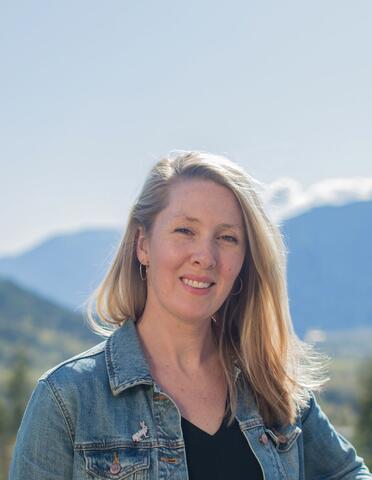
Editorial Assistant Jamie Kitt's Interview with Clea Young whose story "In Loco Parentis" was published in Issue 299 (Spring 2024)
Jamie Kitts: This was such an interesting story to read for me, as someone who both works with neurodiverse children now, and who grew up with sensory sensitivities and access needs herself. Is this a world you have any first-hand experience with yourself?
Clea Young: I was a student support worker in an elementary school for two years. While the story is a work of fiction, it was certainly informed by my experience in schools.
JK: The social media aspect comes through so late in the story. It's a really surprising development that reframes all the questions Teja has and the decisions she makes. Why explore perspective through this lens?
CY: This is such good question! I’m embarrassed to admit I didn’t really think about why I was doing it—incorporating social media, that is— but I suppose it serves as a device in that it forces Teja to view the episode with Felix in the park objectively, and since the story is told from a close third person POV, it also affords the reader a similar step back. And if I really think about it—which, thank you for forcing me to do—I suppose I also wanted to subtly pose a few questions to the reader: if you’d seen the video of Teja and Felix in the park, without the backstory, where would your judgement land? Where does your judgement land with the backstory? Also, notice that you are judging.
JK: Neurodiversity is such a broad term, arguably encompassing both Felix's non-verbal communication and sensitivities, and Teja's social anxiety. Both are treated a bit harshly by others who don't understand them. With so many competing perspectives at play, do you think you privilege one perspective over another?
CY: You kind of hit the nail on the head; neurodiversity is treated harshly by those who don’t understand and/or haven’t been exposed to people who experience the world differently. The story is told from Teja’s POV, so in that sense her perspective is automatically privileged over the others, but by giving her voice more space, it’s another way to demonstrate whose perspective is privileged in society; it’s certainly not Felix’s. In fact, aside from acting as the catalyst, he becomes secondary to the turmoil that ensues.
JK: I'm about the same age as Teja, and I think it was back when I was in high school that I started seeing a greater push for visibility and acceptance for neurodiverse people. What do you think of the current state of neurodiverse representation in our media and culture?
CY: Neurodiverse representation in our media and culture has come leaps and bounds since I was a young person in the 80s and 90s, but we can always do more. EDI is now a lens through which we, much more broadly as a culture, view opportunities and experience. We have language now for these conversations that we didn’t before. Out of language comes dialogue, and, with hope, further leaps and bounds.
JK: Fiddlehead 299 is an issue featuring multiple stories and poems about family and parental figures. Do you think this reflects emerging cultural conversations about parents and families, or do you see your story in a different context?
CY: Perhaps this story is more adjacent to ones that directly feature families and/or parental figures. At one point, the story asks readers to consider Felix’s parents, who must trust the school system to care for their non-verbal child, a child who cannot tell them when they pick him up if he had a good or bad day. The story also asks the reader to consider the perspectives of the two mothers at park who observe Teja’s interactions with Felix, the one mom who says, “I’d just grab him,” and the other who stays quiet but interprets the situation differently. And Teja questions her own approach and reactions, wondering if she would be better poised to handle the situation in the park if she were a mother herself, with the depth of experience and licence that comes with that title. I suppose (“suppose” because this isn’t something I think about while I write) one of the main points of the story is simply that people react to and judge any and every situation based on layers of experience and cultural biases (parental figures included!). But more important that who is reacting and how, at the heart of the story is a child who communicates differently, who moves through the world differently. Though it will take time, and, as evidenced by Teja, spectacular failures along the way, it's incumbent upon his caregivers (and, more broadly, the world) to learn his language and connect in a meaningful way.
— Clea Young’s stories have appeared in three volumes of The Journey Prize Stories, and she has twice been shortlisted for the award. Her first collection, Teardown, was published in 2016 with Freehand Books. Her second collection, Welcome to the Neighbourhood, is forthcoming with House of Anansi Press in 2025.
Photo credit: Taylor Sandham










